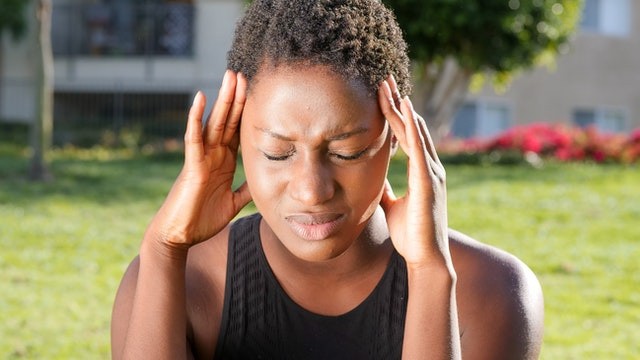Severe and urgent causes of headaches comprise bleeding, tumors, clots, and infection. In cases like this, medical experts advise not to hesitate going straight to the hospital, either accompanied by a trusted driver or via ambulance, once one or more indications are noticed.
A report from The Conversation enumerates sudden start of worst headache one has ever had; a headache that's worsening while exercising or having sexual intercourse; neck stiffness; high fever that's not improving even when taking pain medication; headaches following trauma to the head or neck; or weakness or numbness on one side of the body.
There are three specific conditions also considered urgent. These include pregnancy or previous pregnancy in women with sudden severe headache, immunocompromised people or those living with HIV, and those who have had any COVID-19 vaccine in the past four to 42 days, and with persistent headache despite taking the usual painkillers, as stated in an Australian Government guideline.
ALSO READ: Brain Exercises: 4 Ways to Faster Learning and Memory Enhancement

When to Seek Help from a Doctor
Most headaches don't require a trip to the hospital. More often than not, the condition is less severe and can be handled without going to the hospital. However, they can still take a serious toll on one's health.
As of this writing, about 15 percent of Australians are taking painkillers to ease their headaches. However, just because one doesn't need to race to the hospital does not mean he does not need to seek help, especially when experiencing regular headaches.
For people suffering lingering headaches, it's ideal to know when to see a doctor and expect what he'd ask during the consultation.
Begin by setting a long appointment to see a general practitioner to describe the headache and nothing else. It is important to give it time and attention the condition deserves, too.
It will help to make a record of a patient's headaches for his doctor's appointment, too like a "headache diary" because the most essential tool doctors possess to diagnose headaches is the patient's history.
Possible Questions a Doctor Might Ask
One may feel that the doctor asks a lot of questions during the visit. That is because there are so many probable causes. It is important to bear with the general practictioner (GP) to get the most precise diagnosis.
One of the questions he may ask is about the pain if it is caused by "something straightforward." Possible common causes may include dehydration, neck and eye strain, grinding of teeth, withdrawal from caffeine, or lack of sleep.
Another question is about the exact location of the pain in the head. Sometimes, the area where the pain provides a hint.
For instance, roughly 35 percent of headaches are due to tension headaches, which feel akin to a tight band surrounding both sides of the head.
Another four percent are described as "cluster headaches," which begin behind one eye, which can eventually turn red and watery, not to mention, frequently associated with a stuffy nose.
Migraine and Headache Patterns
A migraine attack may be preceded by an "aura" like flashes of light, and frequently includes symptoms such as vomiting or nausea, extreme sensitivity to light and noise, and blurred vision.
Certain headaches like tension headaches or migraine episodes may have triggers, setting them off, which include certain foods, sleep deprivation, specific smells, or emotional stress.
In addition, hormonal headaches are tracked with menstrual cycles. Once a link is noticed, one may prevent and eventually, treat headaches early, The Times said in a similar report.
Seldom, extremely high blood pressure, a hypertensive crisis, can result in headaches. Nevertheless, increased blood pressure during a headache is typically simply one's natural response to pain.
Related information about migraine and headaches is shown on JJ Medicine's YouTube video below.
Check out more news and information on Medicine & Health in Science Times.
© 2026 ScienceTimes.com All rights reserved. Do not reproduce without permission. The window to the world of Science Times.











